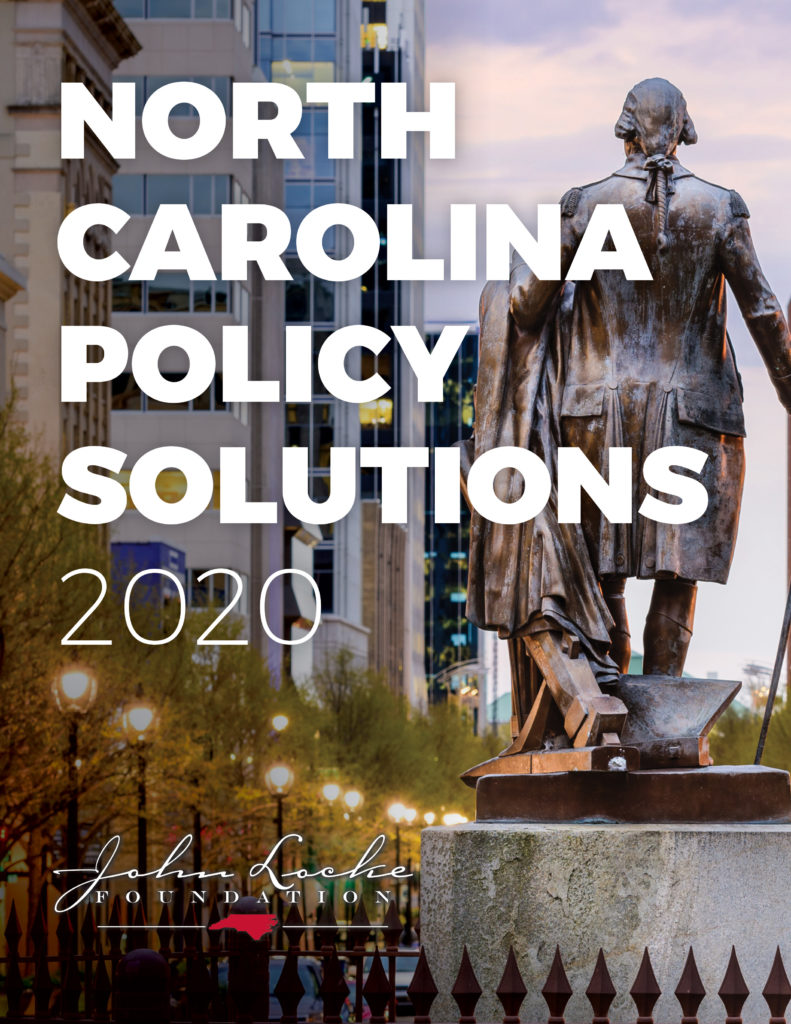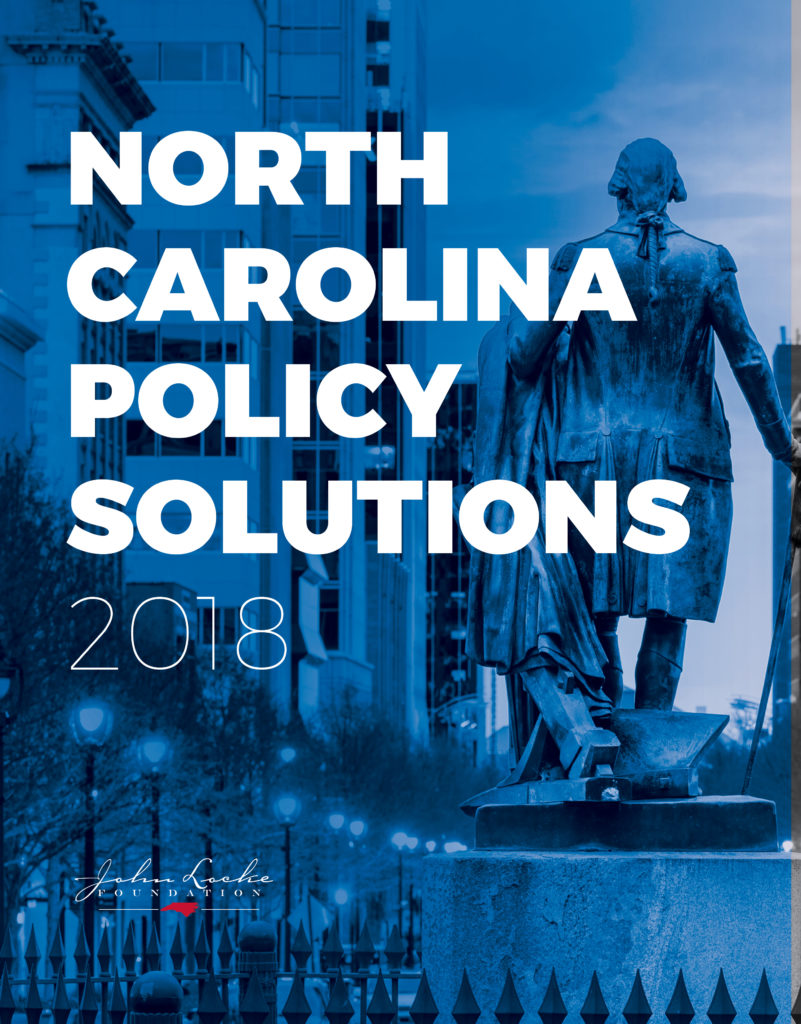Agenda 2014
A Candidate's Guide to Key Issues in North Carolina Public Policy
Introduction
Every two years since 1996, coinciding with North Carolina’s races for the General Assembly, the John Locke Foundation has published a revised edition of Agenda, our public policy guide for candidates and voters. Typically as we enter the campaign season, candidates for public office in North Carolina are faced with a daunting task: to develop informed positions on dozens of public policy issues. In the pages of Agenda 2014 we provide a concise and easily digestible guide covering a wide range of specific issues, from taxes and spending to energy policy and education.
In 1946 Henry Hazlitt wrote Economics in One Lesson, his now classic and timeless introduction to economics and economic policy. In writing the introduction to the 50th anniversary edition in 1996 (three years after Hazlitt’s death), Steve Forbes noted, “every tenet of the new economics that Hazlitt dispels continues today to rear its head in one form or another.” It is quite clear that this is true for questions of public policy in North Carolina. Indeed, there were problems and solutions noted in our first edition of Agenda back in 1996 that are still part of our discussion in 2014. We still have concerns about misplaced spending priorities and levels of spending that need to be reduced. Our state’s regulatory burden needs to be reassessed. There are particular problems in the area of energy and electricity where requirements to generate electricity from expensive and inefficient sources are driving up rates and making life less affordable for the state’s most vulnerable citizens.
While in 2013 the legislature made some great strides in reforming the tax code and cutting the overall tax burden for families across the income spectrum, there is still more to be done. The state’s tax system still penalizes investment and entrepreneurship, albeit to a lesser extent than it did a year ago. Medicaid and the health care system are also in need of reform. In the area of education, with the expansion of charter schools and the introduction of a private school voucher plan, the possibilities for parental school choice have made significant advancements. But a great deal still needs to be accomplished, particularly in the areas of curriculum, testing policy, and student achievement.
The unifying principles of Agenda 2014 are the same as they have always been. All of our analysis and policy proposals seek to advance individual liberty, personal responsibility, and a free market economy. Whether we are discussing school choice, economic growth, or health care reform, these are the concepts that have animated the John Locke Foundation’s analysis since its founding in 1989. We firmly believe that policies that advance these goals are, happily, policies that will create employment opportunities, lower health care costs and improve access, reduce the costs of energy, and better educate our children. Both in the United States and internationally, it has been proven time and time again that liberty and prosperity go hand in hand.
Agenda 2014 is a joint effort of the research staff at the John Locke Foundation. Providing the analysis in each of their areas of expertise are Dr. Terry Stoops, Director of K-12 Education Studies; Jon Sanders, Director of Regulatory Studies; Katherine Restrepo, Health and Human Services Policy Analyst; and Sarah Curry, Director of Fiscal Policy Studies. On production and editing the credit goes to Julie Gilstrap, Research Publications Coordinator. In addition, we’d like to thank Tyler Younts, Esq., for providing the entries in the area of legal policy, and Jenna Ashley Robinson and Jane Shaw from the John William Pope Center for Higher Education Policy for the entry on higher education.
Each of the entries in this volume is meant to be an introduction. For readers wanting more detailed analyses of the topics here, we offer several additional resources in a reference section at the end of this guide.

Dr. Roy Cordato
Vice President for Research and Resident Scholar




